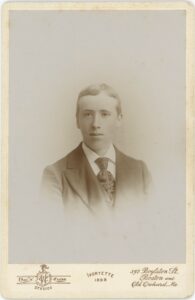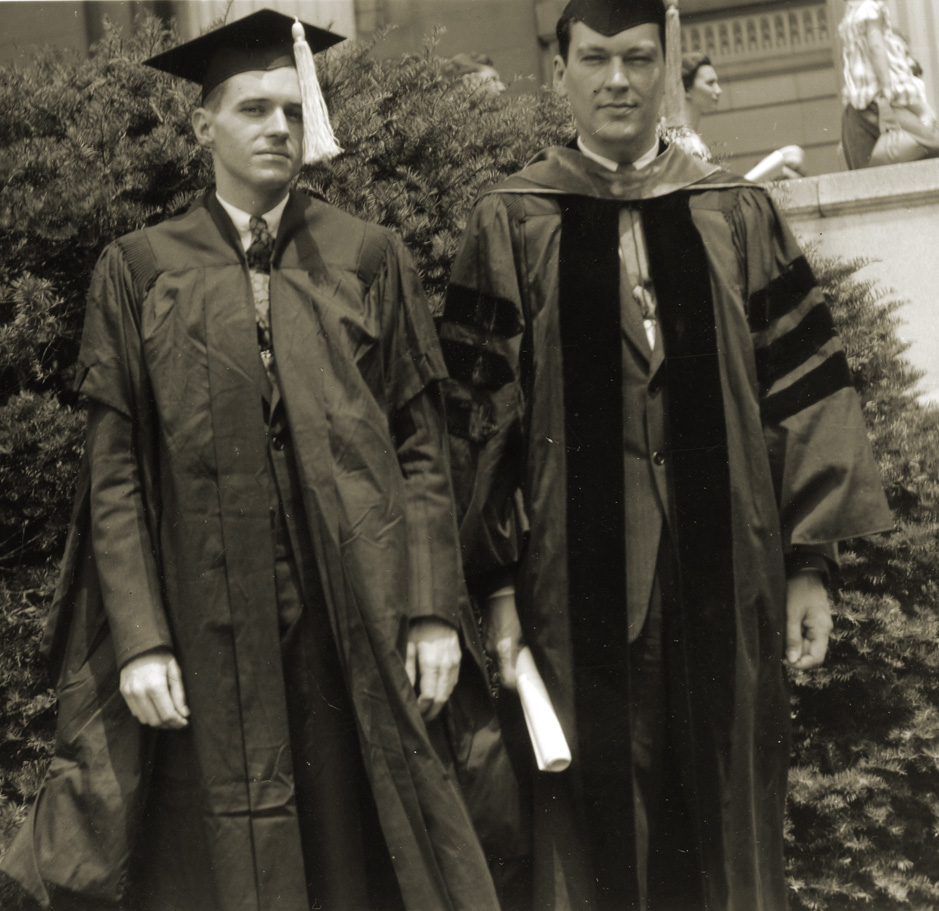 Maurice Elmer Cook: studio portrait, Massachusetts Agricultural College, 1895
Maurice Elmer Cook: studio portrait, Massachusetts Agricultural College, 1895
Born in Marlborough in 1876, Maurice Elmer Cook moved to Shrewsbury at the age of two, when his father, Herbert, purchased property on Floral Street for his market gardening and greenhouse flower and vegetable business. Maurice Cook stayed in the family business, and joined the Massachusetts Agricultural College class of 1897 to further his education in agriculture and market gardening. He worked at the plant house while attending MAC, and often took trips with classmates to hike local fields and ranges in the Pioneer Valley area to collect specimens. Cook was a member of the College Shakespeare Club, the YMCA, the Natural History Society, the Washington Irving Literary Society, and Sergeant in Battalion Org, Company A on campus. He roomed with Harry T. Edwards, of Chesterfield, in South College his first year, and in North College with Charles Adams Peters, from Greendale, for his second and third years. Cook left college early, in November 1895, on account of rheumatism, and did not return. After a trip to Pasadena, CA for his health, Cook returned to Shrewsbury, where he would live and work for the rest of his life. He built a new property and greenhouses there after his 1906 marriage to Carrie Harrington. Both died in Shrewsbury in 1931, leaving behind their three daughters, Gertrude, Elizabeth (class of 1934), and Florence.
The Cook Papers present a detailed view into the daily life and activities of an early MAC student, as well as a look into the infrastructure and organization of the MAC campus. Cook wrote home regularly, and the over 80 letters from his two and half years at the college offer significant coverage of his classes and studies, his living arrangements and financial needs, activities on campus and in Amherst, natural and agricultural locales, travel logistics for students, and updates on MAC buildings. In addition to the rich set of correspondence, the collection includes a small but unique set of photographs of MAC grounds and students, additional photographs taken by Cook, several MAC produced postcards, and Cook’s 1894 College Shakespearean Club certificate.
Gift of Kenneth Lever, October 2019




